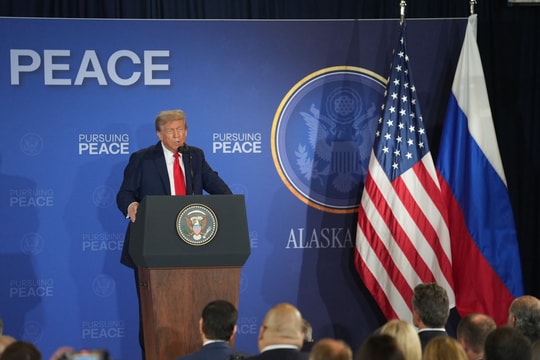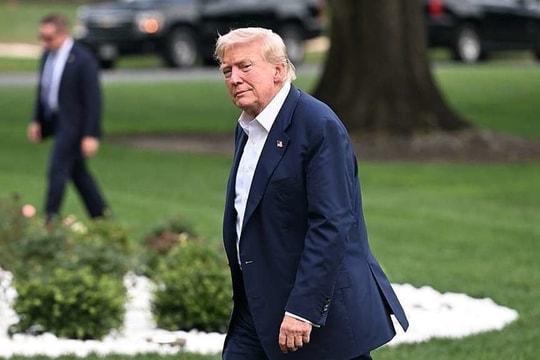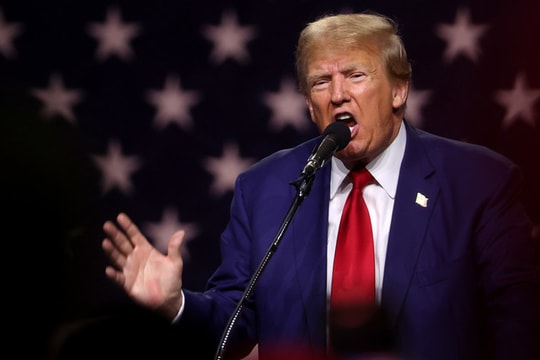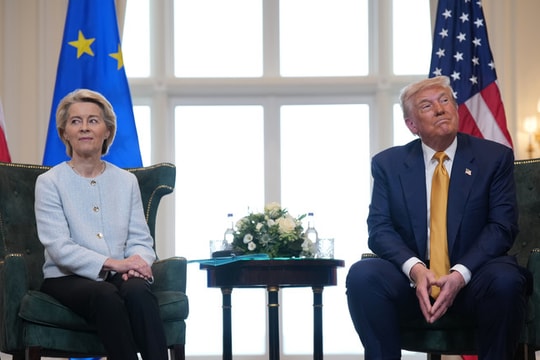China-US economic relations under President Donald Trump
(Baonghean.vn) - Economic relations between the two leading countries in the world are always a matter of great concern. Especially, in the period when the US has a new president with new steps in policy. Let's see how the economic and trade relations between the two countries are going.
Trade war
Donald Trump may change many issues in his policies, however, there is one thing that this president is quite steadfast: China. During his election campaign, Donald Trump always accused China of being a country that bullies the US or steals American jobs. Mr. Trump once declared that he would impose an unbelievable 45% tax on imported goods from China if the country behaves unfairly - a move that could lead to a trade war between the two leading economies.
President Trump claims his plans will result in good economic policy and create more jobs for Americans. However, many economists argue that it will hurt American consumers more than it will affect Chinese businesses.
American consumers could pay up to 10 percent more for goods made in China if tariffs are imposed, according to the Center for Global Capital Economics. These could include laptops, refrigerators and cell phones. And it’s not just Chinese companies that make these products. Many U.S. corporations have factories in China that could be affected by any tariffs.
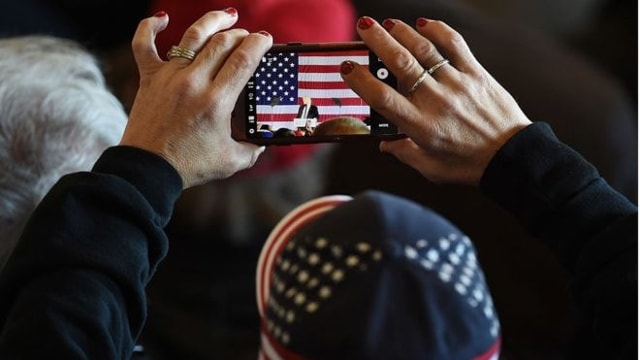 |
| Smartphones could get more expensive for US consumers if a trade war breaks out. Photo: BBC |
Electronics and machinery, including iPhones, account for half of all imports to the US that originate from China. But if President Trump’s goal of making the iPhone entirely in the US is met, production costs could rise by only 5%. However, components would still have to be imported because if they were made locally, the price of the device would be even higher. The tariffs that Mr. Trump intends to impose could affect jeans, toys, school supplies, umbrellas, rubber boots, and Christmas lights.
In practice, it is difficult to know how the Trump administration will implement its proposed tariffs. According to Deborah Elms of the Asian Center, under US law, the maximum tariff that can be imposed on foreign goods is 15%. The US could impose tariffs on specific sectors such as steel, but would almost certainly face retaliation from China.
Experts estimate that if the US completely stopped buying goods from China, the second-largest economy in the world could see its GDP fall by 3 percentage points. Given China’s already slowing economy, that would be an unthinkable scenario for the country.
China may now know what to do when the trade war between China and the US takes place. When that happens, a series of Boeing orders from China will be replaced by Airbus or revenue from US cars and iPhones from the Chinese market will suffer. In addition, many US companies, such as Boeing, are heavily dependent on business from China and thousands of jobs in the US are created from these activities.
The growth of consumer spending and the vast market of 1.3 billion people are things that American businesses cannot ignore. For example, China's smartphone market is larger than the US and Europe combined. Or the fact that up to 60% of US soybean exports go to the Chinese market, which makes it difficult for the Trump administration to deal a heavy blow to China's trade. In fact, Chinese President Xi Jinping just declared at the Davos forum that "no one wins in a trade war."
And if history is any guide, Xi is right. In the aftermath of the Great Recession, the United States imposed high tariffs on imported goods to protect its workforce. This prompted other countries to impose retaliatory tariffs, leading to a global trade war that shrank the world economy and reduced global trade by 66%.
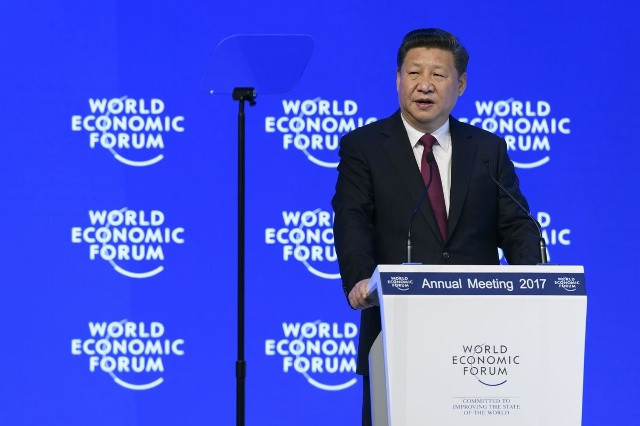 |
| Chinese President Xi Jinping speaks about globalization at the World Economic Forum in Davos, Switzerland. Photo: Bloomberg. |
Free trade
With his opposition to trade liberalization policies, on January 23, Mr. Trump officially took his first action as president, withdrawing from the Trans-Pacific Partnership (TPP) free trade agreement. This move by Mr. Trump is a strong blow to the efforts of his predecessor Obama in the policy of pivoting to Asia.
This is also the political and economic void left by the US that China is “eager” to fill. Most recently, Chinese President Xi Jinping compared protectionism to locking oneself in a dark room and signaled that the country would move towards negotiating free trade agreements. Currently, China is participating in a 16-member pact called the Regional Comprehensive Economic Partnership (RECP) without the US.
Cooperate
In his speech on globalization at the Davos economic forum, the Chinese president emphasized the issue of promoting trade and investment liberalization and saying no to protectionism. Besides, Trump is a mercantilist and he also stated that “trade is good if everyone respects the rules of the game.”
Therefore, instead of protectionism or causing a trade war that would cause losses to both sides, building a free market with high standards, fairness and rigor would bring many benefits not only to the US but also to China. This is also what both top government officials are aiming for. Last week, the Chinese Ministry of Commerce announced that it is willing to cooperate with the US to promote economic relations and develop healthy trade between the two sides.
Phan Vu
| RELATED NEWS |
|---|


